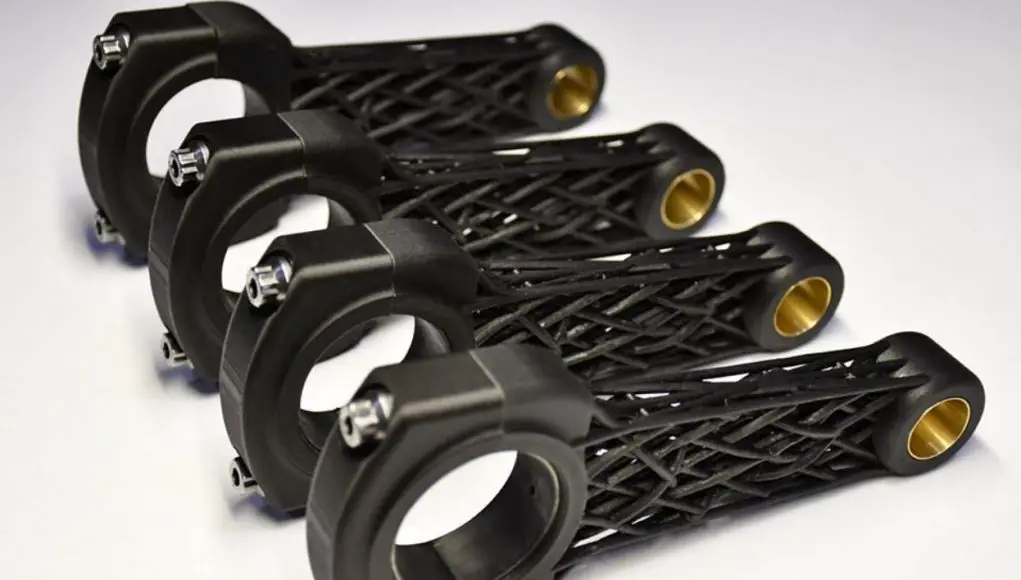Let’s say money wasn’t an issue. Would you install carbon fiber connecting rods in your high-horsepower build?
Connecting rod technology has grown over the years with motorsport teams and tuners pushing the boundaries of material science. Now, these Greek tuners are ready to bring carbon fiber tech from simple exterior aero parts into engines with their carbon composite connecting rods made specifically for the Mitsubishi Evolution.
Check out their post below.
Connecting rods take the brunt of up-and-down motions of the piston and translate that force to the crankshaft, turning your piston’s energy into a rotational force.
Most connecting rods in modern, everyday engines are made from good ol’ steel.
Although not as light as some connecting rod metal materials, steel is strong enough to handle the rigors of everyday driving with the occasional stab of the throttle, day in and day out for the life of the car.
If you want to make more power, upgrades to the engine internals for more efficiency and overall power is expected. Among the laundry list of complimenting internal upgrades, going for a better connecting rod, is a common upgrade.
Lighter and stronger connecting rods allow for faster revving engines for better throttle response at the expense of durability.
Like bike frames, connecting rods have gone through similar metal upgrades from 4130 Chromoly, to aluminum, to titanium, and now carbon fiber in the form of carbon composites.
Compared to the metals they replace, carbon composites are extremely light and strong.
Carillo rods made from a chromoly alloy weigh about 567 grams or 1.2 pounds. These carbon composite conrods supposedly weigh 77 grams or .16 pounds.
That’s insane.
Extreme Tuners Claim these conrods are good for up to 15,000 RPM which is motorbike territory. I’m confident Evo tuners won’t even touch those insane rotating speeds.
Extreme Tuners are not the first to come out with this technology. Speedhunters covered how AWA Composites was first to market back in 2018, a set of carbon conrods setting you back $18,000.
As their post mentions, Extreme Tuners will be dyno testing these special carbon composite connecting rods soon. I’ll keep you posted if they actually work.





Completely fake. This material is far too weak when it was hot.
Check out the history of this ‘tuner’ shop. They consistently post fake ‘future’ parts to draw in customers for their very mainstream product line.
I would agree with James; carbon fiber, though light and strong, ages much faster and eventually gets stress cracks. Same reason carbon bike frames don’t last as long as alloy ones.
Their social media is dead. The last post was before they hit the dyno with these a few years ago. I think we can assume they maybe talked where they should have actually tested first?